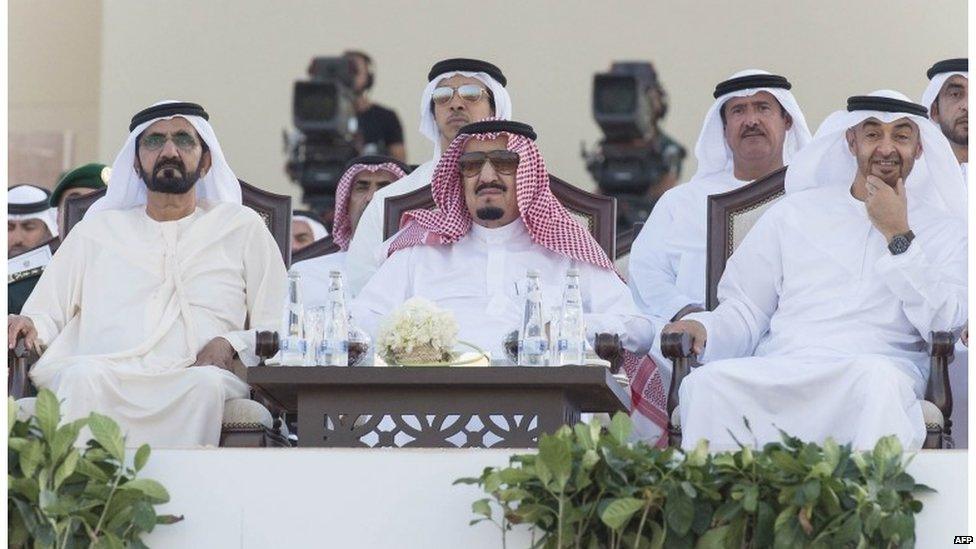May seeks 'new chapter' in Gulf relations ahead of Bahrain visit
- Published

Theresa May will meet the leaders of Saudi Arabia and the UAE during the visit
Developing post-Brexit trade with the Gulf region will be the focus of a two-day trip to Bahrain by Theresa May.
She will be the first UK prime minister and female politician to attend the six-nation Gulf Co-operation Council.
Mrs May said some would argue the UK should not seek to strengthen ties with the states because of their controversial human rights records.
"But we don't uphold our values and human rights by turning our back on this issue," she insisted.
The prime minister will attend a dinner with the leaders of Saudi Arabia, Kuwait, the United Arab Emirates, Qatar, Bahrain, and Oman on Tuesday evening, before addressing the plenary session on Wednesday morning.
She will announce a space technology tie-up with Abu Dhabi and a new multiple five-year visa entry system for UK firms doing business in Saudi Arabia.
"There is so much we can do together - whether it is helping one another to prevent terrorist attacks, Gulf investment regenerating cities across the UK or British businesses helping Gulf countries to achieve their long-term vision of reform," Mrs May said.
"So I hope my visit will herald the start of a new chapter in relations between the United Kingdom and the Gulf."
'Force for good'
During a series of bilateral meetings, Downing Street said it expected the situations in Syria and Yemen and relations with Iran to be discussed.
Foreign Secretary Boris Johnson said on Sunday he had repeatedly expressed concerns to his Saudi Arabian counterpart about its involvement in the Yemeni civil war amid allegations that civilians had been targeted during bombing campaigns against Houthi rebels fighting the government.
But he said he did not believe a "threshold has been crossed" requiring the suspension of British arms sales to Saudi Arabia.
Mrs May will meet young people in Bahrain to discuss progress on political and social reforms since the widespread unrest in the Gulf nation in 2011, which prompted a much-criticised crackdown by the authorities.
"No doubt there will be some people in the UK who say we shouldn't seek stronger trade and security ties with these countries because of their record on human rights," she said.
"[But] we achieve far more by stepping up, engaging with these countries and working with them to encourage and support their plans for reform.
"That is how Britain can be a force for good in the world as well as helping to keep our people safe and create new opportunities for business."
The government says it has identified £30bn of high-value opportunities for British businesses across 15 different sectors in the region over the next five years.
- Published21 September 2016

- Published23 August 2016
